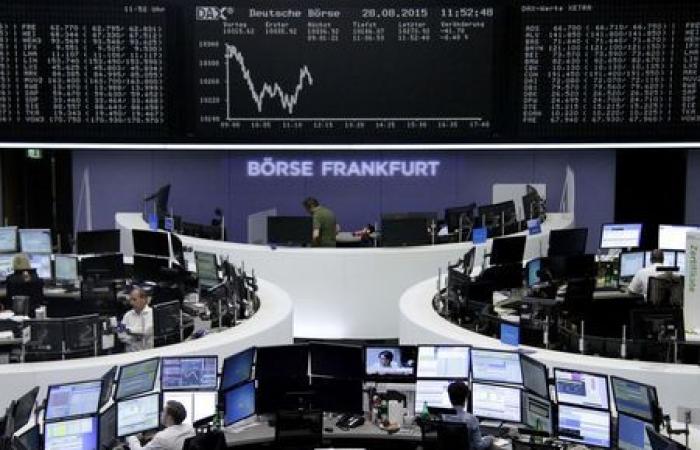FRANKFURT (dpa-AFX) – Next week, the Dax will not only begin a new trading week, but also the second half of the year. Focus is therefore not only on the next sessions, but also on the medium-term prospects. This is all the more true as several deadlines are planned, the importance of which goes well beyond current affairs. Firstly, the French elections this weekend.
The adage that political purses have short legs may this time prove to be inaccurate. Indeed, the change in the political landscape that the polls indicate has a scope that goes well beyond France.
“The far-right, populist National Rally (RN) party led by Marine Le Pen is clearly leading the polls, while a strong left-wing alliance has formed at the same time,” says Edgar Walk, chief economist at Metzler, explaining the situation. “Both sides want to roll back reforms and distribute more welfare, which could push the current deficit from around 5.0% of gross domestic product (GDP) to a worrying 9.0%.”
This would not go without echo on the financial markets. The weakness of the French stock market and the evolution of the bond market have already given us a foretaste. “The spread between French and German government bonds has widened, reflecting growing investor distrust,” says Walk. “These are – with more than 50% French government bonds held – mainly foreign creditors, who dump bonds more quickly than domestic creditors when the news is bad.” Market disruptions would therefore be possible.
Walk is counting on the French president’s veto power to prevent excessive spending. But there is little to be gained. “The winners of the elections will probably not be able to implement the much-feared deficit increase, but they will also not be able to implement the necessary austerity measures,” warns the economist.
But the elections among our neighbors are not the only ones to cause turbulence. The US presidential elections are also on the horizon. Especially since after the recent televised duel, the question is no longer just ‘Biden or Trump’. Indeed, after the performance of the current American president, which raised numerous questions about his state of health, experts believe that a change of Democratic candidate in the short term can no longer be ruled out. But that would add uncertainty to the U.S. election campaign, which is generally not good for stock markets.
Investors took advantage of the uncertainty to cash out of US technology stocks, which rose sharply. Jürgen Molnar, capital market strategist at broker RoboMarkets, sees the development of US semiconductor manufacturer Micron as a warning sign. “Continued strong sales and earnings and, according to the company, memory chips that were out of stock were not enough for investors, who sold the stock,” says Molnar. “When good news no longer reaches the stock exchange, the market is overbought.”
The warning signs for the Dax are therefore far from good. “After a nine percent rise in the first half of the year and a slight correction so far, it could be difficult for the market to escape the summer trough,” predicted Molnar. “Especially since even on Wall Street the signs are for a change to sell.”
Added to this are the warning signals from the national economy. Economists at the Landesbank Baden-Württemberg (LBBW) do not regard the latest Ifo business climate index as a one-off slippage, but as a bad omen. “The business climate had already suffered a marginal decline in May. In addition, the situational component is marking time and expectations have deteriorated again,” says a recent assessment. This is also likely to be felt in the coming months. “It is likely that economic performance will be close to stagnation in the second quarter and that imagination for better times will also be lacking for the third quarter,” adds the LBBW.
On the chart side, all this has left its mark. “With its double sell signal, the Dax has just entered a consolidation phase and a consolidation range,” noted technical analyst Marcel Mussler. Investors should therefore prepare themselves at best for a directionless swing, with Mussler citing a trading range between 17,626 and 18,567 points. Breaks above or below one of these levels will be decisive for the further course of events, although the technical analyst believes that a rise is unlikely.
Inflation data released earlier this week could also set the tone for the week ahead. “Fundamentally, the inflation trend in Germany and the euro area remains broadly downward, which should give the ECB additional room to cut policy rates later this year,” noted Robert Greil, chief strategist at private bank Merck Finck.
The US also provided some important impulses. The ISM Purchasing Managers’ Index for June and the minutes of the last central bank meeting are on the agenda. They should be analyzed for indications on future US monetary policy, as should the main indicator of the end of the week, the June employment report. If it brings the hoped-for slowdown, hopes for interest rate cuts could be revived – and thus brighten the rather gloomy outlook for the stock markets./mf/tih/mis
— By Michael Fuchs, dpa-AFX —






